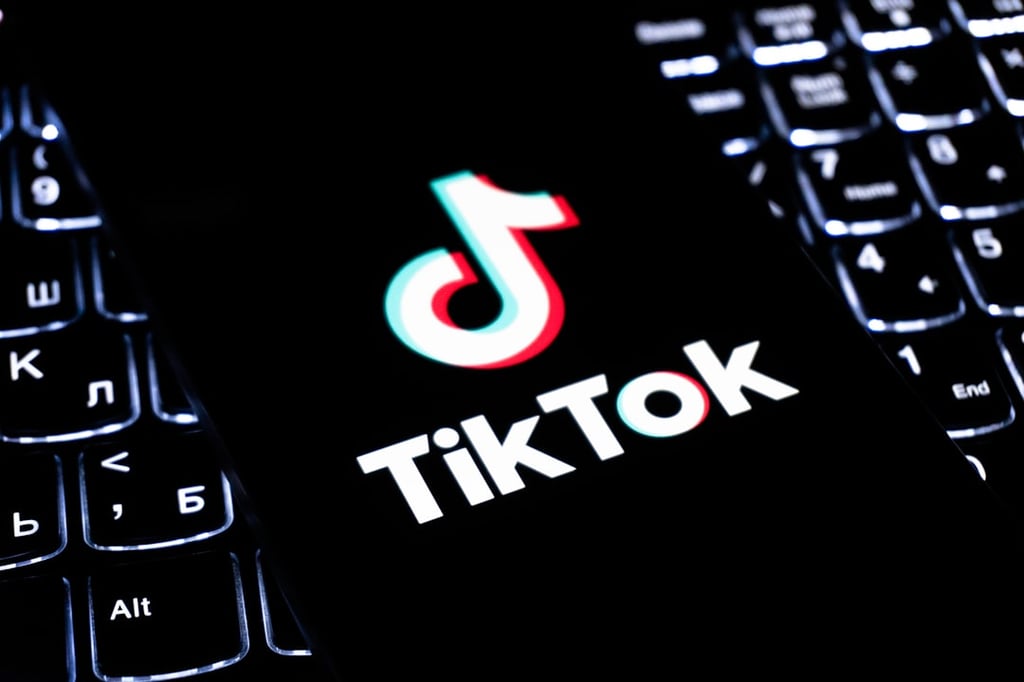Everybody loves Android and hardly anybody loves Google’s Chromebook line of cloud-based laptops.
Android is the amazing alternative to Apple’s iPhone, dominating world market share and providing an open and stable platform for the creation of hundreds of thousands of apps.
So why do I think Chromebooks or Chromebook-like cloud devices are the future of Google phones? To understand this, you first have to understand Google.
The Three Worlds, According to Google
Google views computing as being divided into three worlds:
1. The Smart Internet
The Smart Internet is the Google world — a world in which algorithms and artificial intelligence enhance and augment human life while people are connected online.
Search is the original example of online intelligence for Google. Instead of finding things in Yahoo’s directory — basically the library model of giving you everything in a card catalog — Google came out with a search engine that used algorithms to rank search results in a way that helps you find what you’re looking for.
The ultimate expression of the Smart Internet is Google Now, the intelligent personal assistant that learns your preferences and gives you answers to questions even before you ask them.
2. The Dumb Internet
The Dumb Internet is one alternative to the Smart Internet. The Dumb Internet is the part of the online world where algorithms and artificial intelligence play no roll. The Internet is just a series of tubes delivering messages or information to users.
Google Reader is an example of the dumb Internet, and Google killed it because it’s an alternative to Google’s vision of the Smart Internet. As a Dumb Internet application, Google Reader is not only something that falls outside Google’s area of interest and specialization, it’s an alternative to Google’s vision of intelligent, computer-assisted content discovery and consumption.
3. The Non-Internet
The other alternative to the Smart Internet is the offline world. The regular version of, say, Microsoft Office is an example of the offline world — an app that runs on your desktop whether you’re connected or not.
Understanding Google’s three-part vision of the world helps you understand why Google does what it does — and also what it will do in the future.
Why Chromebooks are more Googly than Android
Google recently announced that Android chief Andy Rubin would no longer run the group, and that Chrome head Sundar Pichai would take over Android in addition to his day job of running all things Chrome.
This sounds a lot like the fledgling ChromeOS is being treated as more important to Google than the mighty world-conquering Android platform. And I think that’s exactly what’s happening.
Google co-founders CEO Larry Page and special projects director Sergey Brin have said three odd things about Android in the past few years.
1. “I believe Android was very important for Google. I wouldn’t say it was critical,” Page said while being cross examined by a lawyer during a patent lawsuit with Oracle in April of 2012. In several statements associated with the Android-isn’t-critical comment, Page made it clear that Android is important only to the extent that it delivers Google’s cloud-based, Smart Internet services.
2. “Android and Chrome will likely converge over time,” Brin told reporters in 2009.
Brin said this more than three years ago — but it demonstrates that even then Brin’s vision for phones involved Chrome-like functionality.
3. “I feel it’s kind of emasculating. You’re just rubbing this featureless piece of glass,” Brin said of smartphones in a recent TEDtalk.
Everybody jumped on the word “emasculating,” and online commentators seized on the gender politics aspect of the word.
To me, the more telling and important word in this quote is “featureless.” A smartphone is featureless? What did he mean by that? A typical smartphone is absolutely packed with features.
But not from the Google perspective. Brin’s point was that, compared with Google Glass, smartphones are shackled by the Dumb Internet and Non-Internet worlds.
Google Glass, on the other hand, is the purest vision yet of the Smart Internet because instead of focusing on the abstract world of virtual things on a screen, you focus on the real world, and the real world is made part of the Smart Internet because you’re plugged into Google’s algorithms via Google Glass.
While you’re wearing Google Glass, there is no Dumb Internet and there is no Non-Internet. There is only Google’s Smart Internet.
These “surprising” quotes really aren’t surprising at all when you use my three-world model to understand how Google thinks.
To Google, ChromeOS devices, such as the new Chromebook Pixel, are Googly Smart Internet devices that support and enable the Google vision for the world. Yes, you can use them for Dumb Internet and Offline stuff, but they’re optimized for being online and using Google’s algorithm-based services.
Android, on the other hand, is a hybrid device of all three. Yes, it “delivers” Google’s Smart Internet products, other app makers’ Smart and Dumb Internet products, and also runs apps and data stored exclusively on the device itself, which are designed to function the same way whether there’s an Internet connection present or not.
Like all companies, Google has limited resources — especially limited engineering talent. The company wants to put “more wood behind fewer arrows,” as Google famously once said in a blog post.
Instead of wasting time on the Dumb Internet and the Non-Internet, Google intends to put as much “wood” as possible behind the Smart Internet.
The Smart Internet is where Google can dominate everybody and really make a difference.
Android rules the mobile world today, but both the hardware and the software behind smartphones has quickly evolved into commodities.
A couple years ago, chip makers started selling complete chipset and detailed plans so that even very small companies could crank out cheap smartphones. As a result, there has been a bloom in small Chinese companies making smartphones — hundreds of companies — and some of them are able to make Android phones for less than $50.
A similar thing is happening in the smartphone operating system space. Linux already provides the core functionality of a smartphone operating system. So initiatives like Tizen and Firefox OS are coming out of the woodwork to compete with Android.
Thanks to cheap chipsets and free Linux, Google finds itself in a business that’s neither exclusive to Google nor favoring the cause of the Smart Internet.
Chromebook-like smartphones? Well, that’s different.
Why I want a Chrome-based smartphone
Google wants to make the world safe for the Smart Internet. And Google is right. Their vision is better.
Right now, it’s very early in the world of Chromebooks. They still have a reputation as being flimsy, underpowered, limited netbooks. It will take a while for the Pixel to alter that perception.
But imagine a future in which Internet speeds are far higher than they are now and connections far more flexible and reliable.
Now imagine a Chromebook or Chrome-based cloud-obsessed phone with a higher resolution screen, more processing power, more local storage and better battery life than today’s best smartphones.
(It’s not hard to imagine some of this: the Chromebook Pixel already has a higher resolution screen than Apple’s retina devices and twice the local storage of the cheapest iPad.)
Also: imagine a future version of the ChromeOS that is super smart about caching apps and data so that if you do ever find yourself temporarily without an Internet connection everything you need is locally available.
And, finally, imagine a Chrome-app ecosystem as active as the Android app world.
You’ll note that these are not pie-in-the-sky predictions, but very conservative projections that will almost certain happen.
Perhaps best of all, the Chrome-based cloud-obsessed Google smartphone that I can imagine doesn’t need a carrier for phone service. It needs only a fast Internet connection, and the ability to make phone calls is just another cloud-based app.
When you log in to Google on your desktop, laptop, tablet or phone, all your same apps and data are there. If you lose a device, you replace it, log in and you can pick up right where you left off. You can even log into anyone else’s device and get 100% of your stuff as if you were using your own machine. You won’t get viruses. Everything is quickly backed up, even if you’re lazy like me.
This is not only an attractive vision for users, but it’s a necessary one for Google.
I think Google is going to transition to a cloud-based, ChromeOS smartphone and I think we’re all going to love it.
-
Huawei’s AI Update: Things Are Moving Faster Than We Think
FEATURE | By Rob Enderle,
December 04, 2020
-
Keeping Machine Learning Algorithms Honest in the ‘Ethics-First’ Era
ARTIFICIAL INTELLIGENCE | By Guest Author,
November 18, 2020
-
Key Trends in Chatbots and RPA
FEATURE | By Guest Author,
November 10, 2020
-
Top 10 AIOps Companies
FEATURE | By Samuel Greengard,
November 05, 2020
-
What is Text Analysis?
ARTIFICIAL INTELLIGENCE | By Guest Author,
November 02, 2020
-
How Intel’s Work With Autonomous Cars Could Redefine General Purpose AI
ARTIFICIAL INTELLIGENCE | By Rob Enderle,
October 29, 2020
-
Dell Technologies World: Weaving Together Human And Machine Interaction For AI And Robotics
ARTIFICIAL INTELLIGENCE | By Rob Enderle,
October 23, 2020
-
The Super Moderator, or How IBM Project Debater Could Save Social Media
FEATURE | By Rob Enderle,
October 16, 2020
-
Top 10 Chatbot Platforms
FEATURE | By Cynthia Harvey,
October 07, 2020
-
Finding a Career Path in AI
ARTIFICIAL INTELLIGENCE | By Guest Author,
October 05, 2020
-
CIOs Discuss the Promise of AI and Data Science
FEATURE | By Guest Author,
September 25, 2020
-
Microsoft Is Building An AI Product That Could Predict The Future
FEATURE | By Rob Enderle,
September 25, 2020
-
Top 10 Machine Learning Companies 2020
FEATURE | By Cynthia Harvey,
September 22, 2020
-
NVIDIA and ARM: Massively Changing The AI Landscape
ARTIFICIAL INTELLIGENCE | By Rob Enderle,
September 18, 2020
-
Continuous Intelligence: Expert Discussion [Video and Podcast]
ARTIFICIAL INTELLIGENCE | By James Maguire,
September 14, 2020
-
Artificial Intelligence: Governance and Ethics [Video]
ARTIFICIAL INTELLIGENCE | By James Maguire,
September 13, 2020
-
IBM Watson At The US Open: Showcasing The Power Of A Mature Enterprise-Class AI
FEATURE | By Rob Enderle,
September 11, 2020
-
Artificial Intelligence: Perception vs. Reality
FEATURE | By James Maguire,
September 09, 2020
-
Anticipating The Coming Wave Of AI Enhanced PCs
FEATURE | By Rob Enderle,
September 05, 2020
-
The Critical Nature Of IBM’s NLP (Natural Language Processing) Effort
ARTIFICIAL INTELLIGENCE | By Rob Enderle,
August 14, 2020
SEE ALL
ARTICLES







